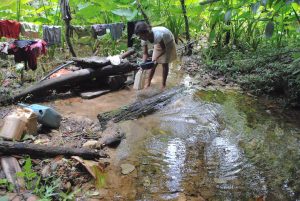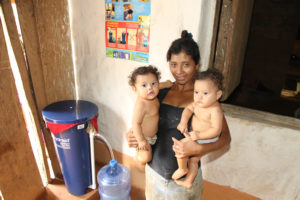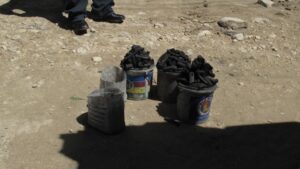Guest written by student volunteer, Owen Unger. Owen lives in Washington and is a freshman in high school. “I decided to volunteer with PWW because environmental issues are important to me and water is seriously affected by environmental factors which in turn affects quality of life for millions.”
 Billions of people around the world lack access to clean water and must boil their drinking water to avoid disease. Pure Water for the World supplies biosand water filters* to households as an alternative to boiling; they are a vital tool to support reliable access to safe water in underserved communities.
Billions of people around the world lack access to clean water and must boil their drinking water to avoid disease. Pure Water for the World supplies biosand water filters* to households as an alternative to boiling; they are a vital tool to support reliable access to safe water in underserved communities.
*Biosand filters are one of the water filtration tools used by PWW to empower families, schools, and communities with reliable access to safe water.
Why water filters? If boiling is already being used to purify water, why do we distribute water filters?
Boiling is expensive. The cost of the fuel required to boil water can be a substantial burden on the families that rely on boiling for safe water. Biosand water filters purify water passively, meaning families with filters no longer need to devote sizable portions of their time and income to resources for purifying water. (source)

This mom in Honduras no longer has to boil water to protect her babies from waterborne pathogens.
Boiling causes pollution. Many families who boil their drinking water do so over an indoor wood or charcoal fire. Smoke from these fires causes household air pollution, which can have adverse effects on health including an increased risk of stroke, pneumonia, lung cancer, and heart disease (source). Children and pregnant women are especially vulnerable to household air pollution, which results in increased mortality rates among children younger than 5 and can cause fetuses to not receive enough oxygen in the womb (source). Families with no other option of purifying water are forced to accept these risks to their health and boil water over dangerous wood fires.
Biosand water filters offer a solution. By purifying water using only the power of gravity, the filters eliminate the need for boiling water.
Boiling isn’t enough. Although boiling water has been proven to be effective at removing pathogens, improper boiling techniques and unsafe storage of water after it has been boiled can lead to recontamination with bacteria. Unclean containers and cups can result in the recontamination of water even after it has been boiled. Families who have not received adequate education may boil their water for too long, losing much of their water to evaporation, or for too short, not allowing time for the heat to kill pathogens.
Biosand water filters remove harmful pathogens. However, filtration alone cannot eradicate waterborne diseases from the communities we serve. Safe sanitation and hygiene education is necessary to create sustainable solutions to water crises. PWW provides families with education about safe water storage practices to ensure that water is kept clean after it is filtered, as well as education about water source protection, environmental hygiene, and personal hygiene to promote healthy practices in the house and surrounding community. In doing so, families learn how to reduce the risk of waterborne diseases and sustain reliable access to clean water.

Charcoal for sale in a rural Haitian community.
Deforestation. Boiling water over wood or charcoal fires is devastating on a global scale. Haiti alone has lost over 93% of its forests in the last century and continues to lose more each year, in part due to unsustainable charcoal production practices (source).
By providing biosand water filtration systems, we strive to decrease the demand for charcoal and firewood as a fuel source in the communities we serve. As the threat of climate change grows ever more relevant, curbing deforestation is an important step in preserving the integrity of global ecosystems. The deforestation of developing countries endangers the livelihoods of people in rural communities who rely almost exclusively on firewood from forests for their basic energy needs (source).
What you can do?
Boiling water has detrimental effects on both personal and environmental health. How can you help ensure universal access to alternative water purification methods?
- Keep the earth clean. Climate change poses a significant threat to people who lack access to safe water. Droughts, extreme weather, and other environmental changes resulting from global warming increase the risk of waterborne disease and cause unpredictability in water sources. Taking action to reduce your community’s contribution to climate change is a necessary first step in eliminating waterborne illnesses and protecting the world from the devastating effects of the ongoing water crisis.
- Donate. Safe water, unfortunately, isn’t free. Financial resources are required to deliver water filters, materials for sanitation facilities, and educational training to rural communities in developing countries. Donations of money, vehicles, tablets, and more (see PWW wish list) empower our teams to continue to provide safe water to families living in underserved communities. It costs between $300-$450 (depending on community location) to empower a family with a biosand water filter, extensive hygiene education, and long-term follow-up monitoring. Every donation brings us closer to fulfilling our mission of improving lives by empowering people with access to life’s most basic necessities: safe water and sanitation.
